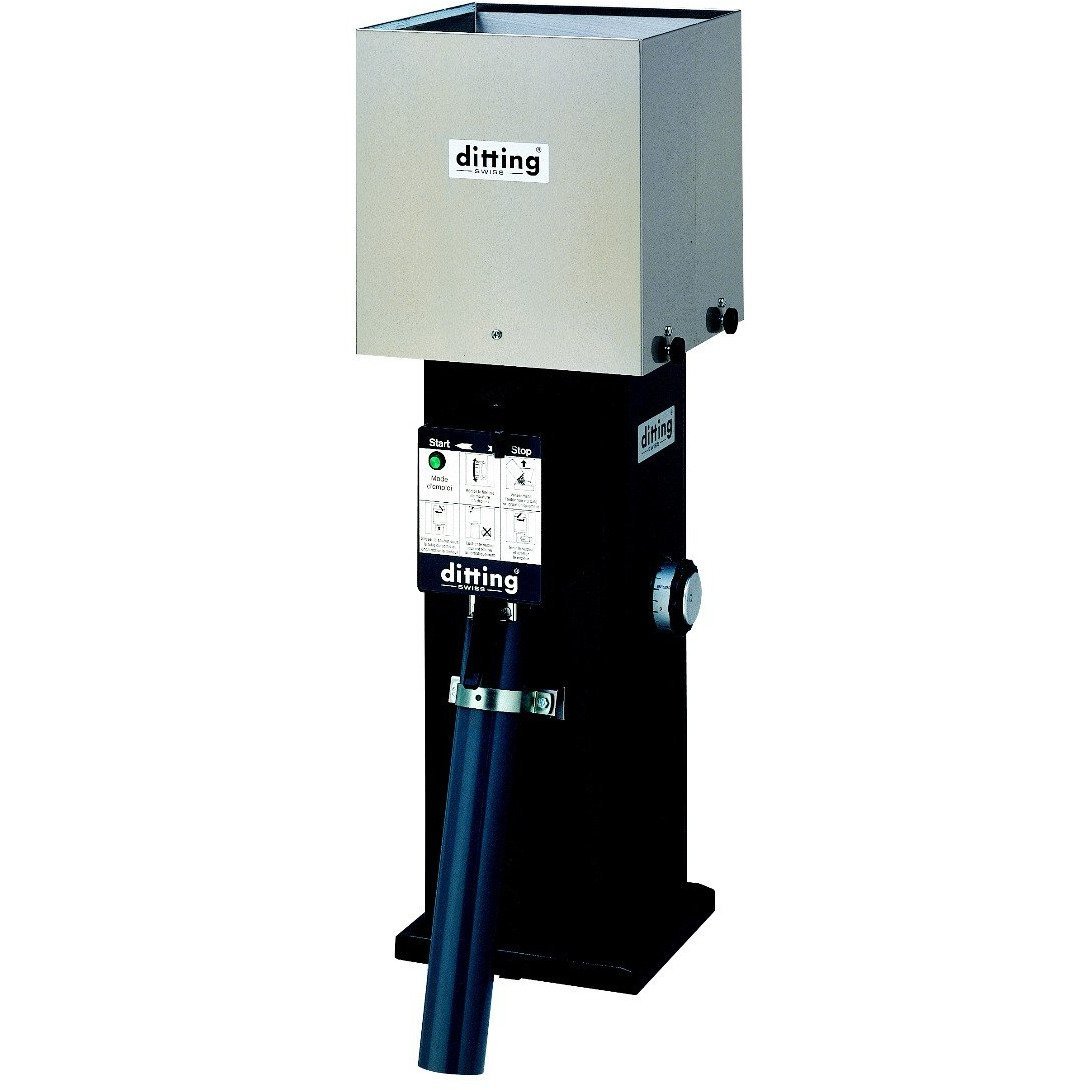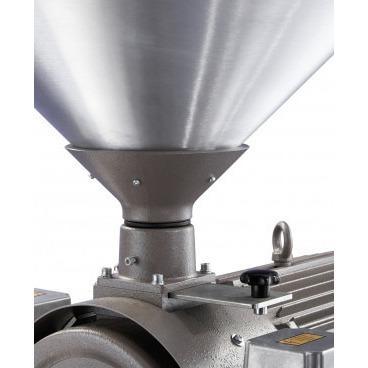Maximize Efficiency with an Industrial Coffee Grinder in Your Shop
Maximize Efficiency with an Industrial Coffee Grinder in Your Shop
Blog Article
How to Select the Perfect Industrial Coffee Mill for Your Service
Picking the perfect industrial coffee grinder for your company is a multifaceted decision that calls for mindful factor to consider of a number of crucial elements. It is vital to evaluate your certain grinding demands, consisting of the volume of coffee processed and the wanted grind consistency, as these elements straight affect taste and customer contentment. Furthermore, recognizing the different kinds of mills offered can dramatically influence your operational performance. As you browse these considerations, one should also evaluate the implications of budget plan and maintenance. What other elements could make or damage your selection?
Assess Your Grinding Requirements
When picking a commercial coffee grinder, one need to first evaluate their grinding requirements to make sure optimum efficiency and consistency. This first evaluation includes understanding the volume of coffee to be processed daily, in addition to the desired grind size for various developing approaches. A high-capacity mill might be required for companies serving big quantities of coffee, while smaller sized procedures could locate a much more portable version sufficient.
Moreover, it is necessary to take into consideration the sorts of coffee beans being utilized, as different beans might need specific grinding methods to attain the very best flavor account. As an example, oily beans may require a grinder designed to take care of such qualities without clumping or overheating.
Specialty coffee businesses typically demand specific grind dimensions to enhance removal and taste, making it important to pick a mill that can deliver uniform outcomes. Reviewing the available space and electrical needs will assist in selecting a grinder that fits perfectly into your functional operations.
Understand Mill Types
Recognizing the numerous types of industrial coffee grinders is essential for making an informed option that fulfills details functional demands. There are largely two classifications of grinders: blade grinders and burr mills.
Blade grinders make use of rotating blades to chop the coffee beans, resulting in an irregular grind size - Industrial Coffee Grinder. While they may be extra economical, they are usually not appropriate for business applications where precision is vital
On the various other hand, burr grinders supply a much more uniform grind by squashing the beans between two surfaces. They can be further classified right into flat burr and conelike burr mills. Flat burr grinders use a consistent work dimension and are typically preferred for coffee prep work, while conical burr grinders are versatile and can manage a series of mixture approaches, from coffee to French press.
When choosing a grinder, take into consideration the specific requirements of your organization, including desired grind uniformity, manufacturing quantity, and the sorts of coffee beverages you plan to supply - Industrial Coffee Grinder. Each grinder type has its advantages and constraints, so comprehending these nuances makes it possible for educated decision-making that lines up with functional goals
Evaluate Grind Dimension Consistency
Achieving grind size consistency is necessary for creating premium coffee, as variants in fragment size can considerably affect removal and taste. When selecting a commercial coffee mill, it is important to review how well the equipment preserves uniformity in work dimension throughout various sets. Inconsistent work dimensions can bring about unequal extraction, leading to a cup that might taste overly bitter or weak.
To examine work size uniformity, take into consideration grinders with features such as flexible work setups and top quality burrs. Burr grinders, particularly, master generating uniform bit sizes compared to blade grinders. The product and form of the burrs play a vital role, with stainless-steel and ceramic choices offering sturdiness and precision.

Consider Manufacturing Ability
In the busy world of coffee manufacturing, thinking about this link manufacturing capacity is extremely important for businesses aiming to fulfill need without compromising top quality. The production capability of an industrial coffee grinder straight influences a business's capacity to fulfill orders successfully, take care of inventory, and react to changing market patterns.
When examining manufacturing capacity, it is important to assess the grinder's result rate, commonly gauged in pounds per hour. This measurement must straighten with your organization's projected sales volume and growth targets. As an example, a café with a high turn over might need a grinder that can refine several hundred pounds daily, while a smaller operation may be adequate with a reduced ability model.
In addition, consider the sort of coffee being processed. Different beans and blends might impact grinding speed and effectiveness, requiring a grinder with the ability of handling diverse production demands. It's likewise worth considering the grinder's ability to keep regular top quality under high outcome problems, as any kind of fluctuations can affect the end product.
Inevitably, picking a grinder that matches your business's manufacturing capacity will guarantee you remain responsive and competitive to customer expectations.

Spending Plan and Maintenance Variables
When reviewing the ideal commercial coffee maintenance, spending plan and grinder factors play a considerable duty in the total decision-making procedure,. A click here for more preliminary investment in a high-quality grinder can generate long-term advantages, yet it's vital to establish a clear spending plan that lines up with your company's functional needs. Think about both the acquisition rate and prospective functional costs, such as energy consumption and replacement components.
Upkeep is an additional critical facet that can impact your budget plan. Industrial coffee grinders require normal maintenance to ensure optimal performance and longevity. Review the manufacturer's referrals for maintenance, consisting of cleansing timetables and parts substitute, as these will affect long-lasting functional costs. Furthermore, take into consideration the availability of service and support, as reputable support can minimize downtime and repair work expenses.

Investing in a grinder that is durable yet simple to maintain can save money in time. While lower-priced options might be appealing, they may sustain greater upkeep expenses and minimized effectiveness. Eventually, stabilizing first prices with lasting upkeep and functional efficiency will direct you to the most effective option for your organization's coffee grinding requirements.
Final Thought
Choosing the optimal commercial coffee mill requires a thorough analysis of grinding requirements, mill kinds, grind dimension uniformity, manufacturing ability, and monetary considerations. A well-chosen grinder not just improves the quality of the coffee produced however likewise adds to the general success and profitability of the enterprise.
Specialized coffee services often demand specific grind sizes to improve extraction and taste, making it vital to select a mill that can deliver consistent results. Apartment burr mills provide a constant work dimension and are commonly preferred for coffee prep work, while conical burr grinders are functional and can take care of a variety of brew methods, from coffee to French press.
When selecting an industrial coffee mill, it is critical to evaluate just how well the machine preserves uniformity in grind dimension throughout various batches. Burr grinders, in particular, succeed in creating consistent particle dimensions contrasted to blade mills.Choosing the ideal industrial coffee mill demands a complete assessment of grinding demands, mill kinds, grind dimension uniformity, manufacturing capability, and financial considerations.
Report this page